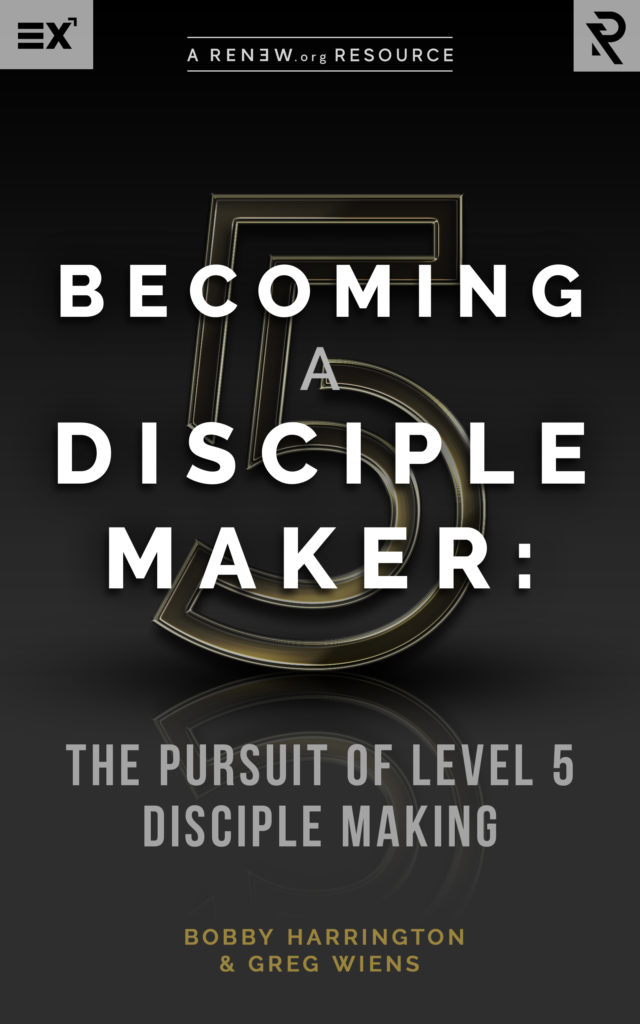
Room for Grief: The Missing Component of Evangelism
When you try to convince someone to become a Christian, you are also trying to convince him that what he currently believes is not true. This means you’re asking him to give something up—something which has been near, dear, and comfortable to him. Anytime there’s loss, we can expect a season of grief.
Our expectations for evangelism need to make room for grief.
Unfortunately, we can find ourselves getting frustrated because, let’s say, six weeks of Bible study go by without the person deciding to get baptized. We can feel like a failure because someone’s not moving along quickly enough in our opinion.
But we need to be reminded that we aren’t just trying to convince somebody that Jesus is the Son of God. We are also trying to convince him that what he has believed his whole life is not true. That what his parents and grandparents believe is not true. That what he was taught by his most trusted teachers is not true.
Your friend has a lot invested in being an atheist, Muslim, etc. By inviting your friend to follow Jesus, you are asking him to go through a major loss.
Because it’s a loss, it is helpful to be reminded that there are predictable psychological rhythms that people typically go through during grief, called the Kübler-Ross model. We need to work with people as real people—mind, body, and soul. Since each of these areas of our lives are interconnected, we shouldn’t be afraid to incorporate solid insights from psychology as we help people spiritually. With that in mind, here is what the Five Stages of Grief might look like in conversion to Christianity:
#1 – Denial.
“Christianity can’t be true, okay? I’ve known what I believe my whole life. My parents are great people, and they taught me otherwise. Some of the best people I’ve ever known believe otherwise. How could they all be wrong?” As Christianity begins to make a little more sense, they begin to find more inconsistencies in what they have always believed. Maybe there’s more to this…
#2 – Anger.
“Why? Why was I taught this my whole life? Why didn’t anyone point these things out to me?” It’s unsurprising that there would be a season of anger and defensiveness when someone’s deeply held beliefs are challenged.
#3 – Bargaining.
Often the next step is to enter into some kind of deal-making arrangement. This could look like, “Okay, God, if You are truly out there, give me a sign.” Or, “Jesus, if You’re truly the Son of God, show me.” Or maybe there is a way to try to salvage the old beliefs by some type of give-and-take bargaining.
#4 – Depression.
The person was probably hoping that, in the bargaining stage, the old system would still come out on top. But when the bargaining doesn’t work out, he finds that he can’t maintain his old beliefs and escape this new way of thinking. After this, he will often enter into a stage of depression. He comes to understand that what he had believed isn’t true after all, and he feels the loss tangibly.
#5 – Acceptance.
Once the loss is accepted, the person can move onto exploring newfound purpose and meaning on the other side of placing faith in Jesus.
When you ask someone to become a Christian, you need to realize that you are asking him to walk through a season of loss and grief. I believe making room for grief is a major missing component to our evangelism. Think about it: your friend may have lived with and sacrificed for his belief system for 40, 50, 60, even 70 years. And we’re frustrated that we can’t get him from denial to acceptance in one six-week Bible study?
When we lose a loved one, we expect ourselves to take a while to grieve. In the same way, we ought to empathize with people as they take time to grieve the loss of their old beliefs. They are giving up deeply held beliefs, as well as the nostalgia and even relationships that come with it. Let’s be patient. Let’s be kind. Let’s allow people to have the space to process their grief.
Moreover, allowing people to work their way through the stages of grief on their way to faith in Jesus will very likely help you to reach more lost people.
Think about how much more effective evangelism will be when it walks alongside with empathy, than an evangelism which is impatient, easily frustrated, and easily offended.
Let empathy influence how you study the Bible with the person you are hoping to reach. Even if the stages don’t always work in a straight line, the stages are often predictable, and knowing the stages can help you engage with empathy.
Is the person seeming disengaged and depressed? He might be disengaging because he needs room to process this new thing he is learning. By seeing somebody disengage and then immediately concluding, “I’ve failed,” you are frankly being egocentric.
One of the biggest problems in our Bible studies is egocentrism: I don’t know enough. I’m not prepared enough. What if I can’t answer their questions? It’s helpful to be reminded that, even if you’re the leader, Bible study is not about you. It’s about connecting the person with Jesus.
Perhaps the person is in a season of anger, and the Bible study has gotten heated a couple times. Or perhaps he’s in a bargaining stage, where he keeps coming back with more in order to prove Christianity false. Instead of feeling defensive at his anger or depression or bargaining, be patient and don’t give up on him. If he misses a Bible study or two, don’t consider him a lost cause and just move on. He may be going through a stage of depression just before acceptance.
You may be bailing on him right before he is ready to follow Jesus. How tragic would that be?
If he seems to be going through a season of anger, then you might say, “Say, you seem kind of angry about what I’m saying. I get it. It’s okay to be angry. You know, there was a time when I was angry about some things that I believed.” Or if someone seems disengaged, you could say, “Do you need some space? Do you need some time? Let’s come back later and talk about this. I’ll be praying for you.”
All the while, pray for him in whatever season of grief and loss he is going through. Be gently persistent, and give space when it’s needed. Don’t take it personally if he gets angry while you’re studying the Bible together.








